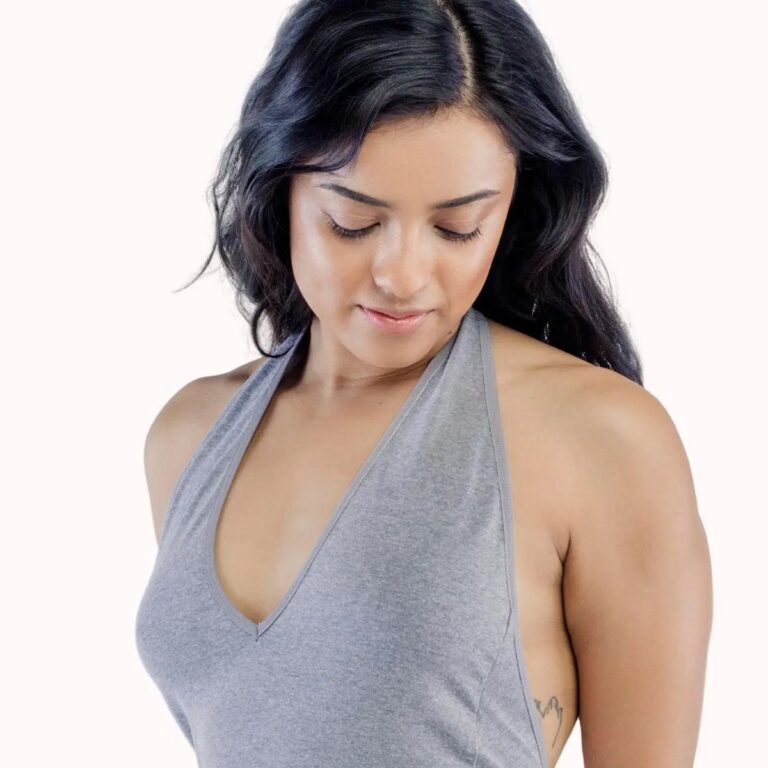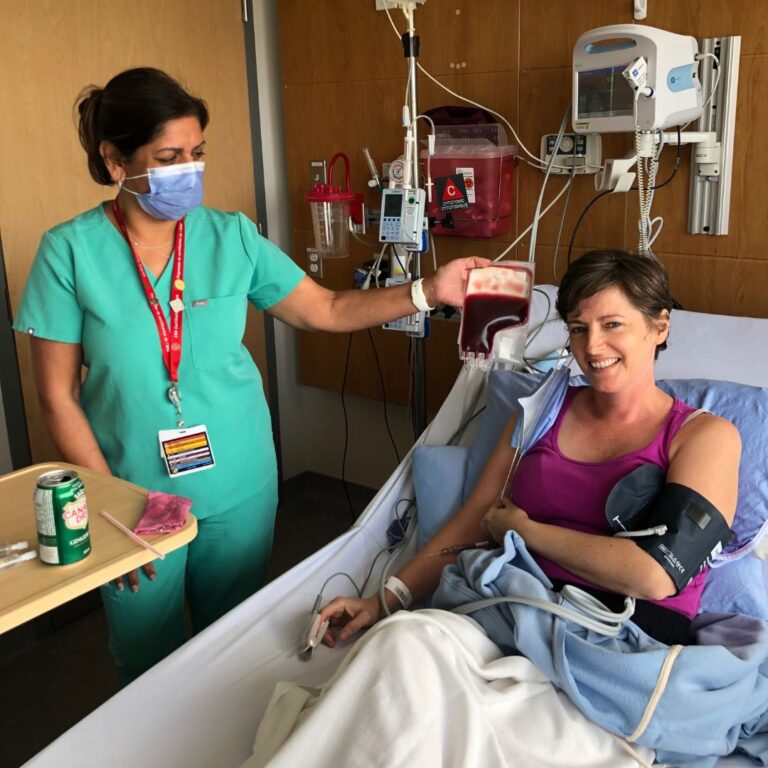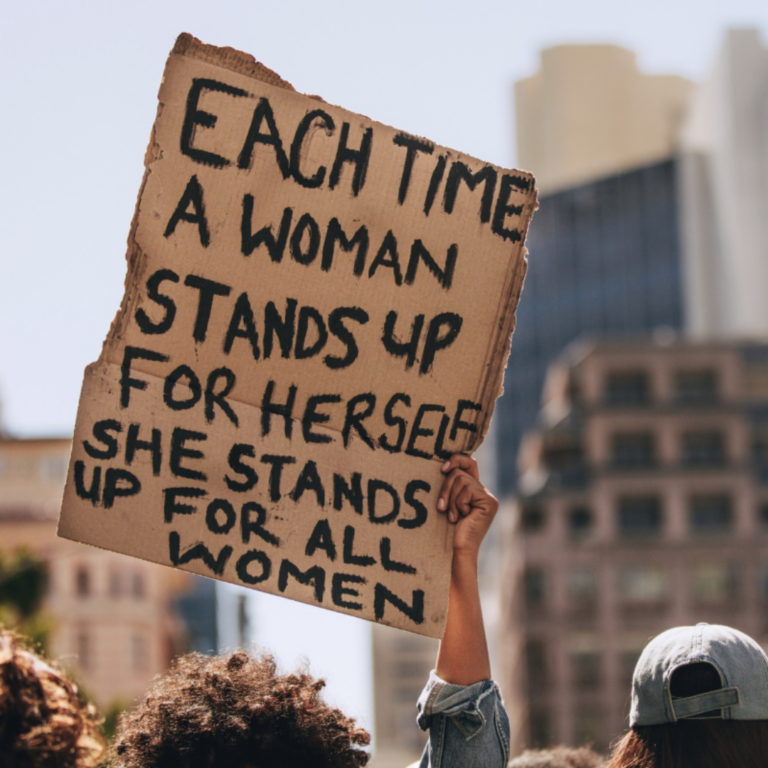Menopause demystified: key symptoms and how to cope
Health06.05.2024

Welcome back to The Honest Talk’s series on menopause. Guided by Dr. Emily Delpero, our first story served as an overview — Menopause 101, if you like. In this story we’re going deeper into menopause symptoms.
We’re focusing here on “systemic” symptoms — widespread effects that the hormonal adjustments of menopause can have on the entire body. We’ll get “local” in a later story, discussing changes you might see to your skin, hair, breasts, vulvovaginal area, and more.
And, as you read, please remember: everybody’s different, and so are the degree and variety of symptoms they experience.
The menstrual merry-go-round: maneuvering through cycle changes
For a lot of women, the first thing you notice might be a change in your menstrual cycle. If it was ever reliable, it might start throwing you curveballs. If it was already unpredictable, it might become erratic.
And, when we say “changes” we mean any kind of change you can imagine.
While many people may assume the time between your periods will lengthen and the periods themselves will slowly taper off, that’s not necessarily the case. (Sorry!)
“People experience a wide array of changes,” says Dr. Delpero. “Cycles get shorter; they get more spaced out. They get heavier; they get lighter.”
WebMD cites a study which found that among women ages 42 to 52, more than 90 per cent experienced periods that lasted 10 days or more — with 78 per cent reporting their blood flow as heavy.
We don’t tell you this to dismay you — rather, knowledge is power. If you do experience heavier flow during perimenopause, it can be good to know you’re not alone, and it also might be time to consider alternative period products, with many women trying menstrual cups or discs.
If you’re concerned about heavier, longer, or more frequent bleeding than usual, it’s a great idea to consult a physician. They can rule out causes other than perimenopause and suggest tactics to help manage menopausal symptoms.

Feeling the heat: understanding hot flashes
In North America, we often refer to them as hot flashes, but this is a case where our UK cousins might have the better term: hot flushes.
While everybody’s experiences are different, for many women, “flash” is too quick a description (even though we wish they were over in a mere flash). Common descriptions include “wave,” “rush,” or “radiating,” with your internal thermostat revving up to send a flush of heat coursing through your body.
If that’s what hot flashes are, you’re probably wondering why they happen. We wish we could tell you for sure. Beyond saying that they’re linked to fluctuating hormone levels, nobody really has a bang-on explanation, although we do like this summary from the Mayo Clinic:
“Research suggests that hot flashes occur when decreased estrogen levels cause your body’s thermostat (hypothalamus) to become more sensitive to slight changes in body temperature. When the hypothalamus thinks your body is too warm, it starts a chain of events — a hot flash — to cool you down.”
This description — kind of like a super-sped-up version of being in a cool room, turning the thermostat up too far, only to have to peel off a layer half-an-hour later — tallies with the experience of many women who find themselves desperately hot, then teeth-chatteringly cold, all within the space of a few minutes.
Sometimes it seems the beginning of the flash is linked to external triggers like being overdressed or sitting in a hot car — but not always.
Sometimes the signs are visible — a red face, breaking out in a sweat — but not always.
And sometimes hot flashes are tied to night sweats — but not always.
Nighttime turmoil: the lowdown on night sweats
It’s easy to think night sweats are just hot flashes at night, however, this isn’t necessarily the case. Some people rarely, if ever, sweat during hot flashes. Personal experience here: I generally wake up at least once a night very, very hot, but usually not sweating.
For many people who experience night sweats, they’ll never even be aware of feeling hot first. In fact, often the first realization you’ve experienced a night sweat is that you’re awake and soaking wet, including your pajamas and bedding.
Or, maybe for you hot flashes and night sweats go very much hand-in-hand … when it comes to menopause symptoms (almost) anything is possible.
Mind matters: hormones and headaches
Menopause can be in your head — literally. The North American Menopause Society (NAMS) says because hormones may play a role in migraine headaches, the fluctuation in estrogen levels in perimenopause may cause hormone headaches to increase. The good news? Don’t say we promised, but NAMS says many women’s headaches will stop once they reach menopause.
Another “in your head” symptom that might be triggered by your menopausal transition? Brain fog. Just because you’re losing your keys, doesn’t mean you’re losing it. To learn more about this (usually temporary) symptom, check out this story from the Mayo Clinic.
The emotional rollercoaster of menopause
It’s hard to think of something more “widespread” or “systemic” than your mood. And we’re here with some good and bad news about how menopause might affect yours. It always makes my mood better to end on a high note, so let’s get Dr. Delpero’s less-great news out of the way first:
“We do know that the first year after your final ovulation opens a window of vulnerability for anxiety and depression, regardless of whether or not you struggled with it before. So going through that transition into menopause can certainly bring up a lot of mood symptoms for people.”
On the flip side, though, she adds: “It can also be a relief for some people who have struggled their whole lives with mood changes related to their menstrual cycle. Because when their menstrual cycle goes away, that hormonal environment stabilizes and they report relief.”
If you’re experiencing mood changes during menopause, you may want to read this story by the American College of Obstetricians and Gynecologists — Mood Changes During Perimenopause Are Real. Here’s What to Know. | ACOG.

Chasing sleep: Navigating nightly disruptions
Chicken or egg? Symptom or cause? It’s no shock that all of the above issues can affect our sleep. It’s also no surprise to anybody who’s ever experienced migraines, or mood issues, that a lack of sleep can be a huge contributing factor to their frequency or severity. Not to mention a lack of energy, low libido — other systemic issues perimenopausal and menopausal people experience.
Telling somebody dealing with night sweats to get more sleep can seem a bit rich. There’s a reason Dr. Delpero told us the main cluster of symptoms people come to her for is hot flashes, night sweats, and the sleep disruption that accompanies them — this isn’t a small issue.
Still, it’s worth trying to prioritize sleep in all other ways you can. If there are non-menopause-related factors affecting your sleep, such as stress, caffeine consumption, screen time before bed, or an irregular sleep schedule, maybe work on those?
A medley of menopause symptoms
Of course, the above isn’t an exhaustive list. (Wait. Exhaustion — there’s another possible symptom of menopause.) You might be wondering about the much-discussed menopausal muffin top — the average 4.5-pound weight gain women experience during menopause. If so, check out our conversation about muscle with Dr. Carla Prado where we discussed this exact phenomenon.
And what about a flat-lining libido? We promise to address some of the sexual side-effects of the menopause transition in future stories — including the one on local symptoms.
For now, let’s move onto things you can try for relief from all the symptoms we mentioned above.
Finding relief: unpacking treatment options
We hear you asking, “How can I manage these symptoms which are sometimes fiery, soggy, and painful and are consistently frustrating?” Dr. Delpero has seen a wide range of approaches when it comes to handling these symptoms, from simple in-the-moment tips to medical intervention: “By the time [a patient] has waited to see me, they have tried several different things. They’ve tried some things that I wouldn’t have recommended off the top of my head, but if it’s working for them, and it’s not doing harm, I’m like, ‘You go, girl.’”
Medicinal pathways: prescription options explored
Dr. Delpero’s message? You can definitely talk to your doctor about medical treatments. Menopause hormone therapy (MHT) is probably the best-known prescription for menopausal women (and one we’ll give a deeper discussion to in a later story), however, Dr. Delpero says there are also non-hormonal medications available. “There are a few hormone-free, off-label medications which have side effects that reduce the frequency of hot flashes. They all have their own side effects, but sometimes it’s the right thing for the patient depending on their story.” (And depending, of course, on consultation with your own doctor.)
Mind over menopause: cognitive strategies for relief
If you want to handle your hot flashes and night sweats but aren’t quite ready to move to medication, there are things you can try at home, Dr. Delpero says. “We do have evidence for cognitive behavioral therapy (CBT), because part of the experience of having the hot flashes happen is not only the hot flash itself, but it’s ‘Oh no, here we go. I can’t escape this. This is so embarrassing. When will this ever end?’ There’s this whole bundle of thoughts that arrive on top of the hot flashes and really disrupt the person.” She says that’s where CBT can come in. “Teaching you coping skills — breathing through it, or distracting yourself from it.”
Having said that, she wants to make sure women don’t feel pressured to minimize their problems. “It’s a fine line because if we dwell on the whole ‘just distract yourself,’ it can dismiss the person’s experience.”
Exploring alternative remedies
Maybe you’ve found something as the result of a Google search, or seen a post on social media, or had a friend whisper in your ear that some herb, or mixture, or pill will ease your menopause symptoms — no hormones or prescriptions needed.
Well … maybe? As a practicing physician, Dr. Delpero isn’t here to comment about alternative remedies. What she does say (with the caveat that you never want to take anything that could harm you) is, “If something helps with your hot flashes, or if it helps with your sleep, and it works for you, fantastic, but there’s also a ‘be careful’ element. Don’t spend a lot of money on something that’s not proven — there’s a fine balance.”
Practical tips for everyday relief
You know we wouldn’t leave you without some practical tips you can start trying right away — these are especially geared toward hot flashes, night sweats, and by association, helping you get more sleep.
Layer, layer, layer: Once you recognize the feeling that a hot flash is starting, you can sometimes keep pace by removing your warm sweater … then your long-sleeved t-shirt … and after sitting in your living room in your camisole for a few minutes, you can put the layers back on. At night, it can work to have layers of sheets and blankets to add and remove as needed.
Mind your diet: Spicy foods, caffeine, and alcohol can often trigger hot flashes. Observing what sets yours off and adjusting your diet accordingly might help.
Relaxation techniques: Stress can be a trigger, so practicing relaxation techniques like deep breathing, yoga, or meditation may offer some relief.
Regular exercise: Staying active helps regulate your body temperature and can reduce the severity of hot flashes.
Stay hydrated: Sipping on cool water throughout the day can help regulate your body temperature.
For those who get particularly hot at night:
- Use pillows and/or mattress covers that contain cooling gels
- Try wearing lighter, looser pajamas, or none at all.
- Use a bedroom fan, sleep with a window open, or sleep in an air-conditioned area.
- Keep a cold pack under your pillow so you can flip your pillow for an instantly cool surface.
- Keep a towel or blanket by the bed so if you do experience a night sweat, you can just cover the damp area, go back to sleep, and worry about it in the morning.
Remember, all the above symptoms — fluctuating menstrual cycles, hot flashes, night sweats, and more — are a natural part of the menopausal journey for many. While they can be inconvenient and uncomfortable, knowing what to expect and how to manage them can make a world of difference.
Knowledge is power. Tracking your menopause symptoms can help you — and help your doctor help you. There are many symptom trackers out there. We like this one from the Menopause Foundation of Canada.










